Russ Volckmann
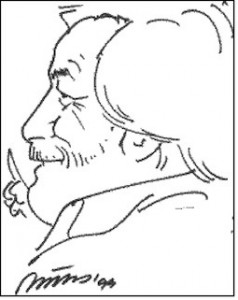 Russ: It has been all about seven months since we last talked. In the August issue of 2011 we had a conversation in which you were showing me how you were bringing Spiral Dynamics analysis in working both with business and in looking at the spread of the cartels in Mexico. So let’s see if we can spend a little time today catching up, what’s been happening since then.
Russ: It has been all about seven months since we last talked. In the August issue of 2011 we had a conversation in which you were showing me how you were bringing Spiral Dynamics analysis in working both with business and in looking at the spread of the cartels in Mexico. So let’s see if we can spend a little time today catching up, what’s been happening since then.
Roberto: The war against crime and drugs is still going on even more strongly. But at the same time the citizens are taking more responsibility and more action in order to recover the peace. In the whole country is spreading what I call a social tsunami. A lot of NGO’s are emerging and are looking for different ways for recovering the peace. This is good, because mostly in Mexico the center of gravity in Spiral Dynamics terms is red, very focused on individuals. Now it’s emerging into more collective thinking, looking for the well being not only of my person or my family, but also thinking of my neighborhood and my city or my community. So that’s a fact and it is very good news.
Russ: How is that happening? Are there people on the ground who are organizing? Is this a spontaneous thing that’s happening?
Roberto: Yes, I think it’s spontaneous, because the people realize that it’s impossible for the government to take control. Little by little. some social leaders with higher conscious levels are starting movements. We can see that the life conditions are awakening new ways of thinking. We have a big opportunity with all these NGO’s that are emerging. We need to interlink them to get more synergy among them, because at this moment most of them are working by themselves. But they are complementary. In some parts of the country there are efforts like in Chihuahua, where a group of businessmen created a foundation maybe 10 or more years ago. Now they are supporting NGO’s that are integrating efforts in order to complement each other. So, I think it is spontaneous derived it from the life conditions. Now we have the challenge to integrate those efforts in order to be more effective for improvement in the country.
Russ: I know you’ve worked with some of the business community in Mexico. Are you seeing a renewal or revival or an increase in interest in social responsibility on the part of business people in order to engage and address the challenges that Mexico is facing now?
Roberto: Oh yes, for sure! The people in businesses are more and more aware of the importance of working not only for their own good as a company, but also in their communities. Many of them are having very tight schedules everyday, because now they are working hard with their companies and also they are involved in some committees, in the government, and social committees. Some of them are also part of the Boards of NGOs.
It’s very interesting, because I think that the concept of “life conditions” is a magic one. It really awakens new thinking, new mindsets. But also we have to recognize that depending of the level of the spiral that they are, there are people that from the very beginning in their lives don’t have a good foundation of values. They also see the opportunity to get involved in crime organizations or start doing crimes by themselves.
I think that it’s going to take some time to find a balance and then to overcome the negative effects of crime. Also, as we talked last time, I think that United States will change the way they approach this problem. They will not leave Mexico with this problem to deal with this problem alone, because it’s a multi-country problem. It starts from the south. We have Columbia, Bolivia, Venezuela, going Mexico and then to the United States and even Canada. If we find a way to for the governments to work together that would be a great way to find a solution a good solution.
Russ: It makes me wonder if in addition to governments there are transnational, multinational, global companies that are operating in Mexico and many of the countries that you just mentioned. Is there any evidence that these companies are stepping up to the plate and taking any kind of responsibility for addressing the challenges that Mexico and increasingly these other countries in South and Central America are facing?
Roberto: Yes. There are several of these companies in my country and they are very active. They are trying to find solutions or engage in the communities to improve the standard of living. So I think we are moving in the right path, since several actors are getting on the same page to building better futures for Mexico. But we need to start building a meshwork in order to create something like a chemical reaction. You know, a chain reaction for the good of Mexico.
Russ: I’d like you to tell us a couple of stories. First, I’d like to hear a story about a local effort. It probably doesn’t make sense to locate it geographically, because I would expect many of these community efforts are very vulnerable to the cartels. Could you give us an example of a community organization or an NGO that has demonstrated some success in dealing either with the cartels themselves or with the life conditions that support people going into the cartels rather than going into their education or into working in Mexico.
Roberto: Yes, there are a lot of examples. The first one I want to share with you is called – I will spell the way you can find it in Twitter, is the –
Russ: Let me ask you something; is it a good idea to name it?
Roberto: Yes, because they are quite open and the way they work is very effective. They are very active in social networks. Here in Mexico we are considering them as an example to replicate in the whole country. On Twitter they are @ cicmty. The weebpage is http://cicmty/. MTY is the short way to write Monterrey in the north of Mexico. Monterrey is one of the most dangerous cities in the country. CIC stands for citizen movement.
They have a group of people 24 hours a day, seven days a week, attending to the messages that citizens send to them. Maybe there is an car accident in this street or a dangerous situation in that place or a flood making trouble for that bridge – any kind of problem they receive. They have a protocol for what to do with the information. Some of the information they send directly to the authorities; some they replicate on Twitter. Citizens make others aware of dangerous situations in certain areas for other citizens.
They have integrated citizens as reporters of what is happening in the city. From very simple things – a streetlight is not working in this street, or whatever situation – they put it on a page on the Internet. We can see a map of the city. On that map they put dots. If you put the mouse onto that dot, there appears a popup that describes what is happening there. So the citizens are getting more information about the dangerous situations in the city to take care of themselves. The citizens are acting as eyes in the city to keep it safe for everyone. It’s working very, very well. Its position is not to be against the government, but to help the government and to make sure that the government ministries and departments’ work well. So this is one of many that are happening in Monterrey. Behind it is a nonprofit organization. There are several business people that are supporting this with money the infrastructure the technological infrastructure and communication in order to keep alive this NGO.
Russ: Another example, as in the Middle East in particular, of the use of social networking to try and coordinate and collaborate.
Roberto: Yes. There also are those on the Internet or on Twitter who send messages telling people to remember that they have psychological support if they need it. We have health support. If they need it, the networks offer free support for families or other persons who live close to a crime or who have a health problem. They are really orchestrating the needs of the society with the possibility to cover that need with their own people or inviting the government agencies to participate. Regarding what you mentioned about the use of social networks in the Middle East, in this case the social network is not against the government. It is working along with the government.
Russ: Do you see the roles of other governments, like the US and Latin American countries, in changing policies? Are you seeing communication across national boundaries, as well as within communities?
Roberto: I would like to think so. Two days ago at the border there was a huge destruction of guns and machine guns and other weapons. On television they showed a lot of weapons – tons and tons of weapons that the Army and the Police here in Mexico have collected from the drugs organizations. They showed a military tank passing over these guns and weapons.
After that President Calderon had an advertising sign, a billboard that the people in the United States can see from the other side of the border. The sign says, “No More weapons!” Each letter was built out of the weapons that were destroyed. President Calderon has insisted on the importance of receiving the support of the United States to stop the traffic in weapons.
I think that this is an effort of the President beyond the talks that I hope he’s having with his counterpart in United States, President Obama and his team. In this way maybe he’s trying to make the people on the other side of the river in the United States more aware that part of the problem that we have in Mexico comes from the United States.
Russ: What about in the other direction, Mexico’s border with El Salvador or nearby in Nicaragua, Costa Rica, Panama? These countries are all at least transportation corridors and they are increasingly experiencing the effect of cartels and drug operations on their countries. Are you seeing any exchanges between the people of Mexico, perhaps not just the governments, and the people of these countries?
Roberto: I don’t have any information about that interaction. Maybe there are confidential discussions among governments, but I have not seen anything about this in the news. At Mexico’s southern border we have the same immigration challenge that the United States has with Mexico. There are a lot of people from Honduras, Guatemala and other countries who cross the borders to Mexico in an illegal way. But the intention is not to stay in Mexico; their plan is to cross all of Mexico and then go to the United States.
Security on the border of Mexico and the United States has increased. People moving through Mexico to get to the United States have more problems crossing to the United States. They don’t have an option and they stay here in Mexico. Also, the immigration police here in Mexico puts them in jail and sends them back to Guatemala or their country. Nevertheless, there are people in the street with strange accents in Spanish – different than Mexican – asking for coins, because of the situation they are living in.
Russ: One of the areas I know you’ve worked with for some time is in the area of education and with the Education Ministry and the Teachers’ Union. Are there any new developments in that work?
Roberto: This is very interesting. In 2006 I had a close relation with some people in the Teachers Union. In 2007 with Dr. Don Beck we had several interactions with the teachers union to work together with Directors of the Ministry of Education. That was a very big achievement. Dr. Beck was challenging them to focus on designing the future of education. He split them into several groups, but on each group there were only people from the ministry or only people from the union. When they came back to the room with their ideas for the future of education in Mexico, they were amazed at how close were their visions.
We had the opportunity to meet the Minister of Education in that time, Mrs. Josephina Vasquez Motta. We were making very good progress on a major project for Mexico in education. Unfortunately, the President made the decision to move Minister Motta. She was sent to the Congress as the head of her party in the Congress. They brought in another minister for education. The problem with that here in Mexico and maybe in all the world it’s the same – when they bring in a new Minister for Education he brings along with him a whole team to work with him. So the team we were working shifted dismantled totally. So we lost our connection; we lost our path and the projects we were working on.
At that time I was disappointed. So I started all over again with the help of the people in the teachers’ union but now with good friends, We started again to knock on doors at the Ministry of Education. We had to find an open door in the Human Resource Development Department.
The interesting thing is that when you plant a seed, as Dr. Beck mentioned, when you plant a seed of these ideas of Spiral Dynamics, of the change in the possibility of transformation, what I have learned is that you never know when that seed will grow or will germinate. For example, the Minister of Education who was removed from her position is now one of the candidates for President in Mexico. We are trying to get in contact with her again. In her team are many of the same people who worked with her in the Ministry of Education. They are the same people that we already knew, so we have a very good window of opportunity to get in contact with her people and to get in contact with this candidate in order to start building an alliance.
Russ: Calderon, the current President, what party is he?
Roberto: Calderon belongs to PAN and PTAN and Josephina Vasquez Motta also belongs to the same party. She is the former Minister of Education in the PAN government and now she’s the official candidate for presidency for the PAN.
Russ: What is the English translation of PAN.
Roberto: It’s the National Action Party.
Russ: Are they running against the party that was in power for many, many years, PRI?
Roberto: Yes, the PRI – the Institutional Revolutionary Party. PRI was for 70 years in charge of the Presidents in Mexico and now their candidate is the strongest one. Then follows Josephina and then follows the PRD, the Democratic Republican Party in third place.
Russ: Now when you say strongest I take it that means that people are projecting that the PRI candidate will win.
Roberto: Well, if you ask people in the street or you ask your friends, many of them think that the PRI will win. Also, the polls show that kind of result. PRI is getting stronger; that’s a fact. As a branch of the Center of Human Emergence we are not looking to support a particular candidate.
In this case what we are looking for is to find the best conditions to improve the country and, particularly in this case, to improve education. If you have a president who was a Minister for Education and she understands the problems, we see better odds to have a real change in the educational system. This is very important because I know that Mexico needs a lot of effort in several areas, but what is a common denominator to improve this country is to improve education and to invest in the Mexico children.
Russ: That’s a long-term strategy, yes?
Roberto: Yes, it’s a long-term strategy that we have been working on since 2006. But now we see a very clear window of opportunity, because we have a hypothesis that in order for the government to increase the odds that Mrs. Josephina will win, they have to do some strategic movement before the election. We are working to be sure that after the government does that strategic movement the best people will be in place. As you remember, Dr. Beck continuously tells us that removing what you don’t like is not the same by getting what you like. So we think that the government of President Calderon will remove several things that we Mexicans don’t like in several organizations in the government and outside the government. We are focusing on trying to find ways to help President Calderon to be sure that we are having what we want, not just removing what we don’t want.
Russ: And are you seeing any results from those efforts?
Roberto: Yes. We discovered this window of opportunity last January in a private meeting with a group of people who I work with analyzing the reality of the country. We deployed a very short time strategy in order to inform our contacts in the country, most of them business people. I have been traveling and presenting this strategy to business people and friends. They are enriching and supporting the strategy. They are helping us to open other doors to reach other people.
Hopefully, soon I will have a meeting with one of the closest colleagues of Mrs. Josephina. My friends from the teachers’ union also are getting close to her team. We already have a connection to get directly to President Calderon. So, we are taking careful steps and reading the daily situation, the political situation. We are very optimistic that before the next election we could have a better platform that assures Mexico is to have a much better educational system.
Russ: If there’s a change in administration’s policy will it be as a result of the elections? Are you doing anything that would work that possibility?
Roberto: Yes. It’s very difficult to know what is going to happen, but as soon as we get close to the key people, both in the team of the candidate Josephina Vasquez Motta and in the team of President Calderon, we will have more information. It requires important changes in the structures of several organizations, both inside the government and outside the government. We’ve seen that we have the proper critical mass to move the country for the better, We are not predicting what is going to happen, but we are working to build from that critical mass a very more attractive future for Mexico.
I have been working on these efforts since 2006. Many people know about my group and the work we do. So already this year I have received several calls from different parts of the country, emails asking for our support or for our knowledge or the experience that we have. About two weeks ago a group of businessmen approached me to invite me for coffee. They belong to PRI and they were asking me to support one of their candidates for a local government position in my state. We also have had some talks with people of the PRB, the third political force.
I told them is that we don’t belong to any party. However, we can support a change effort, if it’s an authentic effort to improve the country or a region or a state. Sometimes when we talk with these people and explore the conditions to give them some kind of support, they decline because they realize that they are not willing to support certain values. We are open to talk to any party. Our party is Mexico, if we can say it in that way. So we are trying to understand this convoluted reality that we are living in and trying to make that flow for the betterment of the country.
Russ: One of the things that I think about regarding the applications of Spiral Dynamics integral in different cultures or even within organizations, is the ability of people to articulate their purposes, the directions they want to go, in language that authentically resonates with the different world views of the people who they are addressing. For example, if people you’re talking to in different parties are grounded in Red, Blue or Orange, are you able to frame your message of development and change in ways that can resonate at all of those levels. I would think that would facilitate bridging differences among the different political parties. Is that the case?
Roberto: Yes, of course. We also always have in mind that powerful tool of the spiral – I call that memetic messages or memetic communication. It’s important to recognize the foundation of the party or the person you are talking to, and the image that you are communicating with. What kind of worlds, what kind of spending or reduction, are you doing in order to get that communication and start building bridges. Let me tell you an interesting experience and case we are having right here in my city in Leon. I have been talking with Marilyn Hamilton about the idea to bring her to my city in order to deliver a seminar on Integral City.
After Marilyn agreed that she would like to come, I started to look for support here in my city. I approached the citizen observatory for Leon; the President of that citizen observatory is my former student. After I showed him the idea to bring Marilyn and have a conference on the Skype with Marilyn, she liked the idea a lot. The idea is to bring Marilyn in May and organize some work with the citizens in order to generate proposals for the political candidates.
We are thinking of an event with 600 people that lasts maybe four hours, Marilyn will deliver the concepts of Integral City and the in other three hours the citizens will be working in tables of 10 with a method that we are going to design along with Marylyn. Maybe it will be similar to the journey management is doing that I described in our last talk. We are going to gather information from the citizens; then we are going to process that information and generate a document with citizen proposals. We are going to deliver that proposal to all the candidates from all the political parties.
It’s important that the parties understand that the citizens are their bosses. This is what their bosses want for the city, besides what they are planning to do with the city. So that’s an example of what we are working on right now in order to align the proposals of the different parties to what the citizens are really expecting from them.
What I have learned after the first time I met Dr. Beck back in 2000 or, is that when you decide to do something to improve a society it’s not good to evaluate the results in the short term. The social dynamics are very different than in a company. Remember that I am a business consultant. What I have learned is that in a society the seeds you plant are stronger than the company. Those seeds can stay for a long long time without growth or germination, but they are not dead.
As the time passes and the events are happening the life conditions are changing, then amazingly what is happening right now here in Mexico and in my personal experience, a lot of seeds that we planted in the past, they have started growing almost at the same time. So it’s very important to be patient, to not disturb the efforts, to not be discouraged or lose your head. You don’t see the results in the short term or even in the middle term, but sooner or later those seeds will germinate and will yield some fruit. This is very important, because now I see my work in the last six years as a social activist very differently.
And I know that even if my team doesn’t have the success we expect with these initiatives to improve the educational system in this year or in this term for the new president, we will keep working. We will keep looking for opportunities to improve our country. This is a never-ending race against the crimes or the bad education or the indifference of the citizens. Always there is the possibility to do something .You never know when that will emerge as a solution or as an initiative of people who are awake in their minds to that idea that I shared with Dr. Beck six years ago or to Roberto three years ago. Now I understand what they meant in those conversations and we are ready to move forward. So, it’s interesting to live this kind of experience.
Russ: It reminds me of the life of bodhisattva and right action. That’s where we focus our energy. That’s where we value our activities and not so much right results because we cannot anticipate the unintended consequences or delays. If we are focused on right action, then that is a meaningful life.
Roberto: Yes, for sure. I totally agree. I can tell you as a final word the same subject of an email I sent recently to Dr Beck. What you cannot control, for sure you can influence. We don’t have to get discouraged, if we cannot control. We cannot control a lot of things in a society or in a country like Mexico or in a global world, interconnected global world. But for sure we can influence a lot of things and especially influence leaders. We have to learn how to lead leaders and former leaders in the society. Behind the scenes we can do a lot of work – planting seeds of new thoughts, new models in the minds of the leaders. Those sit in the minds of the leaders and will grow and will generate new mindsets and new designs for future systems and a better future for Mexico.
Russ: Roberto, on that note I just want to say how much I deeply appreciate your continuing to update us on the work that you’re doing in Mexico and what’s happening in that culture and in that community. It’s very important work. It’s a wonderful opportunity for others to learn about potential applications and seeding change all over the world. Thank you so much.
Roberto: Thank you, Russ, I appreciate the words and also I want to thank you for all the support you have given me and all of us in Mexico, sharing these ideas and my articles in Integral Leadership Review. So I really appreciate your time and your support for our movement. Thank you very much.

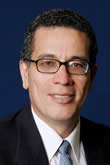
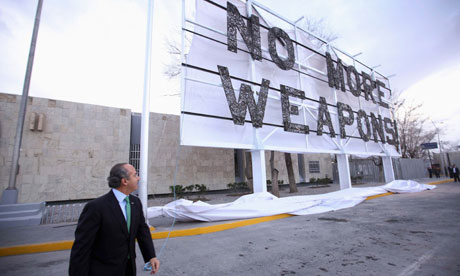
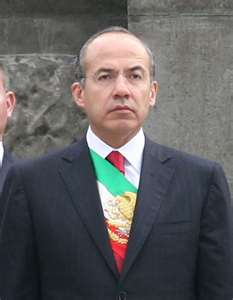
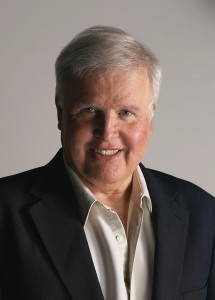


Roberto is a very responsible leathership who has been working for many years in improving social and political conditions of our country.
He has the recognition of many social organizations.
Congratulations for this very interesting interview.
Roberto! it is great to see how many years of great efforts and a lot of experience are adding up to have a better Country. Congratulations on this interview I am sure we will be able to link the requiere elements to keep going trough our citizen learning path!
Roberto! I deeply appreciate your work in Mexico, your commitment, your wisdom and your efforts. Sounds very encouraging what you are saying in the interview with Russ. And I appreciate that you continue to share your experiences in many ways. Blessings for you, your friends, your family and all the courageous folks in Mexico from the Center for Human Emergence in Germany.
I´ve worked close to Roberto for about 20 years and have witnessed his passion to inspire organizations and persons to change in Mexico. He has a practical and deep understanding how to foster change using SDi concepts and combine them to orchestrate new initiatives. Thanks for the interview/post of Roberto on this issue.
Roberto,
Great to see that the interview captures your courage, your brilliant assessment of the situations in which you are engaged, your conceptual understanding of how the world works, and your commitment to social justice. If I can help you in your efforts, let me know.
Bruce Gibb, Ph.D. Organizational Psychologist
Very interesting prespective of some of major problems in Mexico and the best way to find a solution of it, whatever I can do to support your work and ideas you know that you can count with me.
Congratulations Roberto!
It is encouraging to have people like Roberto, with his insight and passion for a better future for Mexico. It is encouraging to be aware that seeds are being planted and that there can be an influence on this country even though there is not a control over circumstances. Thankyou Roberto!